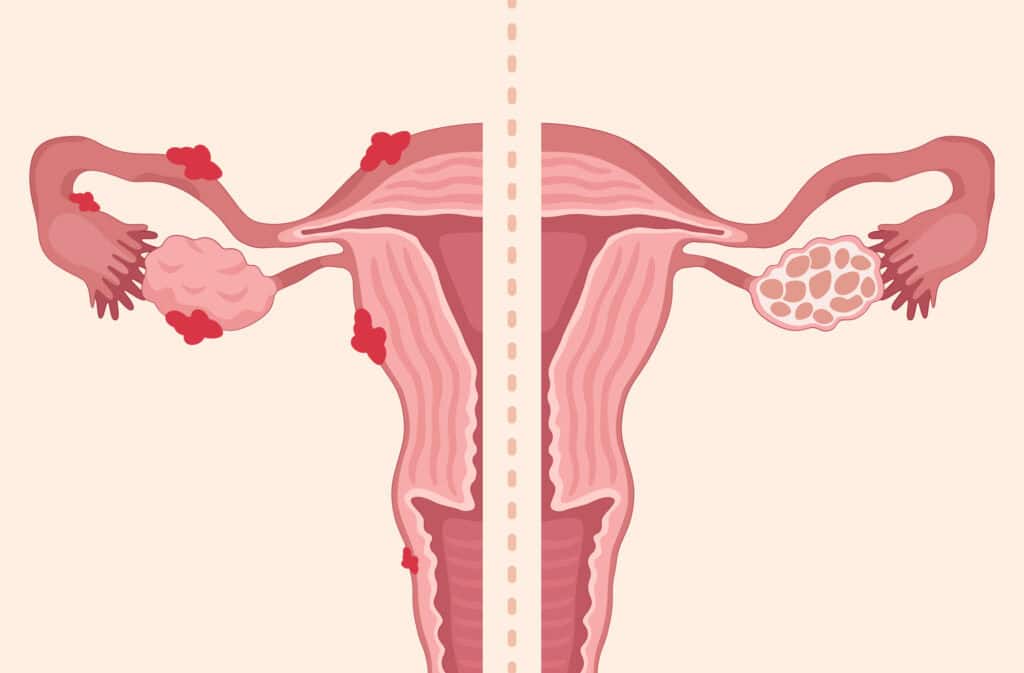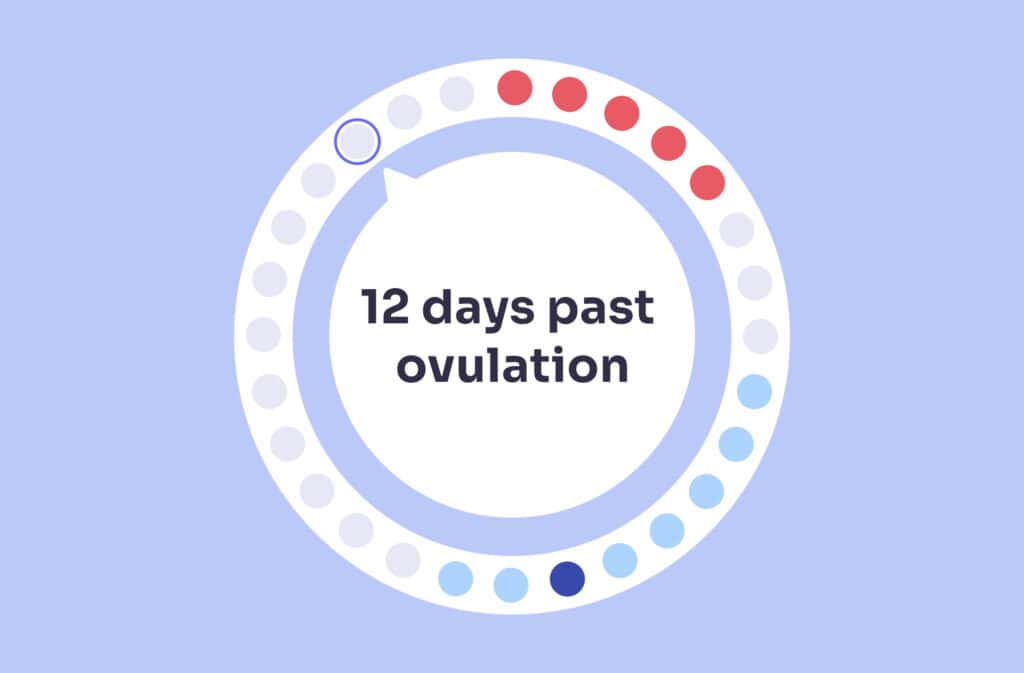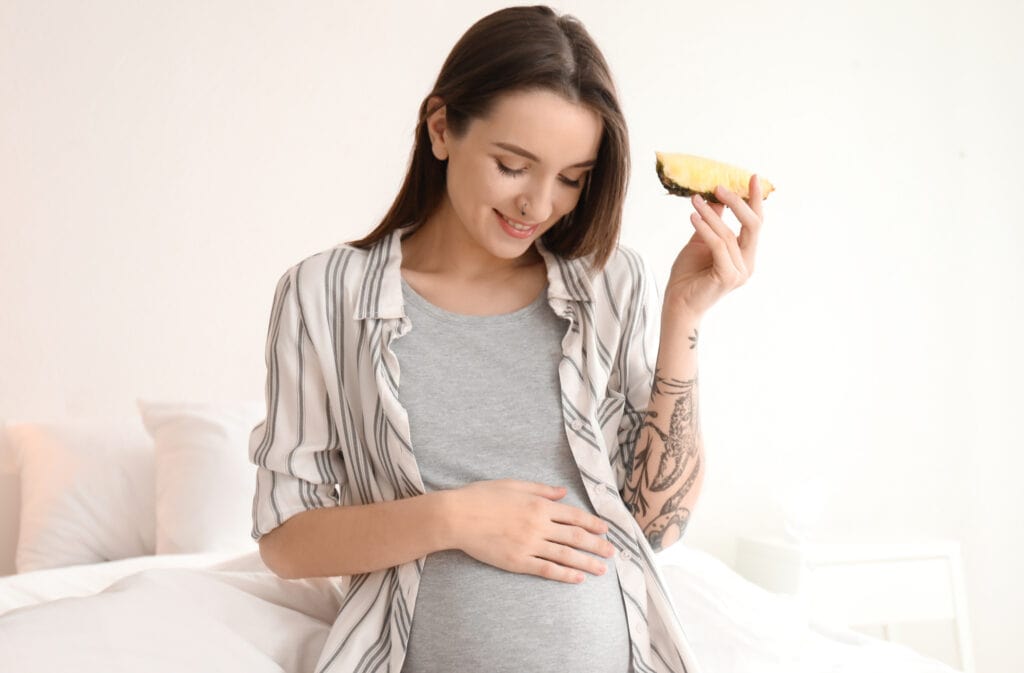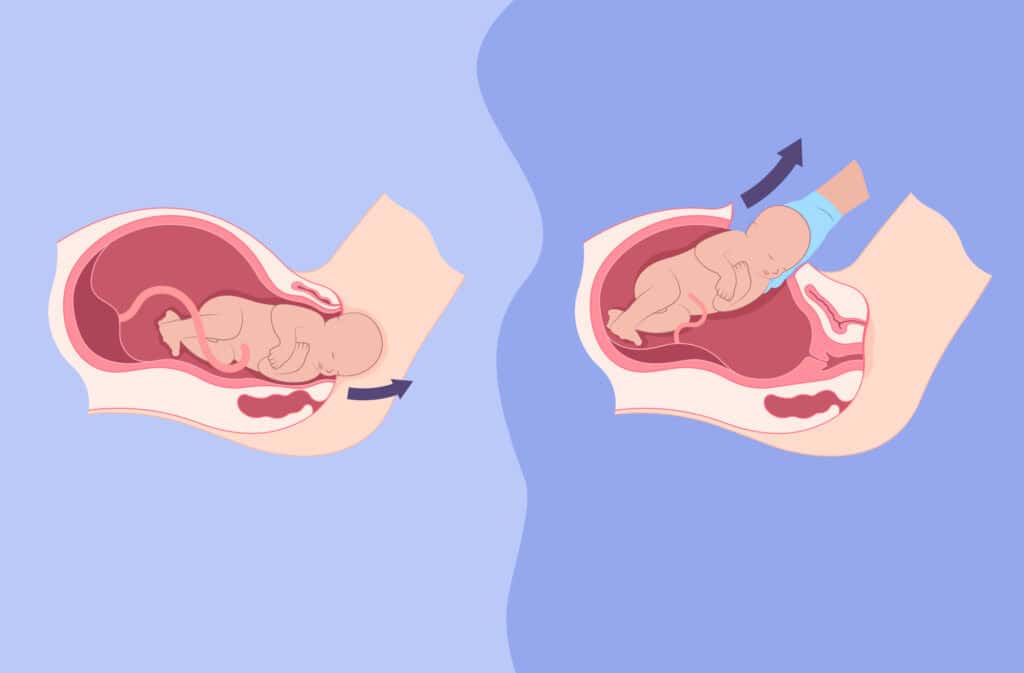Femia > Health Library > Your cycle > Health > PCOS vs endometriosis: Symptoms, differences, and how they affect your health
PCOS vs endometriosis: Symptoms, differences, and how they affect your health

- Updated Feb 11, 2025
- Published
CRAFTED BY HUMAN
Crafted by human At Femia, we provide accurate and up-to-date information at every stage of your journey, from trying to conceive, pregnancy and postnatal support. All content is created by a real person based on in-depth research and own professional experience. Femia ensures that you will receive expert advice, strict accuracy and a personalized approach from our authors/medical experts. Learn more about our editorial policy.
FACT CHECKED
Fact checked At Femia Health, we maintain the highest standards of editorial excellence in delivering content focused on helping you conceive, guiding you through pregnancy, and supporting you postpartum. Explore our content review principles to learn how we ensure the accuracy and quality of our health and lifestyle tips for every stage of your journey.
PCOS is a hormonal condition that stimulates the development of cysts on the ovary and endometriosis is a condition that causes tissue to grow beyond the uterus. These conditions, though often confused, differ by:
- Causes
- Symptoms
- Impacts on fertility
Although these disorders most often exist separately, they can be present simultaneously in some women, which can make the diagnosis and treatment more complex. Yet, it’s still possible to get pregnant with either or both conditions.
PCOS and endometriosis are both linked to hormonal imbalances and might have some overlapping symptoms, which explains the confusion between them. However, they aren’t the same.
Being distinct and each having its distinct impacts on your health, these disorders are important to diagnose and treat correctly. That’s why understanding the difference between PCOS and endometriosis is important. In this article, we’ll compare PCOS vs endometriosis to help you better understand these conditions and avoid confusing them.
Femia helps you understand your symptoms and when to take action
What is Polycystic Ovary Syndrome (PCOS)?
Polycystic ovary syndrome (PCOS) is a hormonal disorder that affects ovaries. It stimulates the development of a large number of fluid-filled sacs (cysts) on ovaries and disrupts their normal work. This typically leads to an inability to regularly ovulate and causes an overproduction of androgens (male hormones) that trigger a number of additional symptoms.
According to the World Health Organization, PCOS is diagnosed in an estimated 8-13% of females. However, the symptoms of PCOS might show later or be not very prominent for a long time. This makes it hard for many women to realize that something’s wrong until they start trying to get pregnant. An estimated 70% of the syndrome’s cases go undiagnosed.
👉Find out more: PCOS supplements: Best options for weight loss, fertility, and symptom management
What causes PCOS?
PCOS is a complex hormonal disorder that can be caused by several factors. Some of the key causes include:
Hormonal imbalance: Elevated levels of androgens (male hormones) disrupt ovulation and the normal menstrual cycle, leading to irregular periods and cyst formation.
Insulin resistance: Many women with PCOS have insulin resistance, which can lead to higher insulin levels in the body. This contributes to weight gain and can worsen hormonal imbalances.
Genetics: PCOS tends to run in families, suggesting a genetic component that makes some women more prone to developing the condition.
Inflammation: Chronic low-grade inflammation is often seen in women with PCOS, which can increase androgen production and worsen symptoms.
Obesity: Excess weight can exacerbate insulin resistance, making PCOS symptoms more severe.
Environmental factors: Lifestyle choices, such as poor diet and lack of exercise, can contribute to the development of PCOS, especially when combined with genetic predisposition.
While the exact cause is not fully understood, these factors play a significant role in the development and progression of PCOS.
What is Endometriosis?
Endometriosis is a different condition, in which tissue similar to the uterine lining grows beyond the uterus. This condition can also develop in puberty, as early as your first menstrual period. Endometriosis causes scar tissue formation, inflammation, and pain, typically, in the pelvic area. However, sometimes, it may also go unnoticed for a long time due to a lack of evident symptoms.
Similar to PCOS, endometriosis is a common condition. Yale School of Medicine reports that it affects an estimated 5-10% of women in their reproductive years and up to 50% of females diagnosed as infertile.
What causes endometriosis?
The exact causes of endometriosis are not fully understood, but several factors are believed to contribute to its development:
Retrograde menstruation: A theory suggests that menstrual blood flows backward through the fallopian tubes into the pelvic cavity instead of leaving the body, causing endometrial-like tissue to grow outside the uterus.
Genetics: Endometriosis tends to run in families, indicating that genetic factors may play a role in its development.
Immune system dysfunction: Some women with endometriosis have immune system issues that may prevent the body from recognizing and destroying endometrial-like tissue growing outside the uterus.
Hormonal imbalance: Estrogen promotes the growth of endometrial tissue, and an imbalance in fertility hormones, particularly high levels of estrogen, may contribute to the development and worsening of endometriosis.
Environmental factors: Exposure to certain environmental toxins or endocrine-disrupting chemicals may contribute to the development of endometriosis.
Embryonic cell transformation: It is believed that, in some cases, embryonic cells can transform into endometrial-like cells in the pelvic cavity during fetal development.
Difference between PCOS and endometriosis
Given their similarities and overlapping symptoms, there has long been confusion about these two conditions.
So what is the difference between PCOS and endometriosis? Let’s examine the two conditions’ causes, symptoms, and impacts on fertility:
| PCOS | Endometriosis | |
|---|---|---|
| Cause | PCOS is a hormone-induced condition. | Endometriosis is a tissue growth disorder. |
| Symptoms | The most common symptoms of PCOS include irregular periods, acne, and weight gain, which is often manifested in the accumulation of excess belly fat. | The primary endometriosis symptoms include painful periods, chronic pelvic pain, and pain during sex. |
| Fertility impact | PCOS hinders the work of ovaries and thus causes ovulation issues. | Endometriosis makes tissue grow outside the uterus, which can block and damage reproductive organs and structures. |
PCOS vs endometriosis symptoms
Let’s compare the symptoms of endometriosis vs PCOS.
PCOS symptoms:
- Irregular periods. Sometimes no periods at all or prolonged menstruation.
- Disrupted ovulation phase of the cycle.
- Excessive hair growth (hirsutism).
- Hair thinning, often, followed by male-pattern hair loss.
- Oily skin or acne.
- Uncontrolled weight gain. Typically, the weight gained weight is concentrated in the abdomen, creating a PCOS belly.
- A possibility to develop insulin resistance due to the hindered work of the hormone insulin. This enhances the risk of getting type 2 diabetes.
Endometriosis symptoms:
- Severe pain during periods that impacts normal daily functioning.
- Intensified bleeding during menstruation. It’s also possible to experience occasional bleeding between periods.
- Irritation of the inflamed tissue during penetration, which can cause strong pain during sex.
- Chronic pain in the lower tummy and back.
- A number of bowel and bladder issues, including diarrhea, constipation, bloating, gas, bladder irritation, and urge to pee frequently. Often, these issues are accompanied by life-impacting pain.
- Frequent and strong fatigue.
PCOS vs endometriosis: Which is worse?
Now that you have a visual comparison of endometriosis vs PCOS symptoms, you should see that both conditions come with a set of symptoms that can cause lots of discomfort and affect your quality of life. Moreover, there might be challenges with getting pregnant with endometriosis and PCOS alike and risks of infertility. Also, both conditions are chronic, which means that you can’t get rid of them completely.
Neither condition is “better” or “worse” overall. Both endometriosis and PCOS can affect you differently. In both conditions, the symptoms and their severity are individual to each woman. And though they can’t be cured completely, they can both be managed with proper treatment to reduce their impact on your daily life.
Can you have PCOS and endometriosis?
The short answer to this question is “yes.” Some women have both conditions simultaneously. Although they are unrelated and one condition doesn’t affect another, even when you have both, symptom overlapping can increase the severity of both conditions and complicate treatment. Apart from complicating symptoms and treatment, the presence of both conditions may also increase the risk of infertility, which is why timely diagnosis and a holistic approach to management are crucial.
Is it common to have both PCOS and endometriosis? In fact, it’s quite rare. AJOG Glob Reports studied this phenomenon and found that:
- Operative cohort: Only 5% of participants had both conditions compared to 35% with only endometriosis and 9% diagnosed only with PCOS.
- Population cohort: Only 2% had both compared to 10% with solely endometriosis and 8% with solely PCOS.
How are PCOS and endometriosis diagnosed?
In answering the question “What is the difference between PCOS and endometriosis,” it’s relevant to review how they’re diagnosed:
- PCOS is typically diagnosed through a combined medical assessment. Patients typically take blood tests and have a pelvic ultrasound, while a doctor also assesses their medical history to see the bigger picture.
- The primary method of endometriosis diagnosis is laparoscopy which aims to examine the tissues in and around the uterus. Additionally, a doctor might do symptom evaluation and conduct imaging tests, such as transvaginal ultrasound and magnetic resonance imaging (MRI), to determine whether surgery is needed.
Treatment options for PCOS and endometriosis
Due to the different causes and symptoms, endometriosis and PCOS require different treatment approaches.
PCOS treatment
Being a hormonal condition that hinders your cycle, PCOS requires treatment that helps regulate hormones and restore a regular menstrual cycle. Often, the treatment options include:
- Birth control pills contain the female hormones estrogen and progestin, helping decrease the level of androgens and ease related symptoms, such as acne, excessive hair growth, etc.
- Lifestyle adjustments help restore hormonal balance naturally. For example, integrating nuts, seeds, dairy, legumes, and grains into your daily diet can help increase estrogen naturally. Other lifestyle changes, such as regular exercise and proper sleep can help increase progesterone naturally. Lifestyle adjustments can also help you maintain a healthy weight and mitigate issues with metabolism and reproductive function.
- Treating other underlying health complications associated with PCOS, such as insulin resistance and type 2 diabetes, may also require additional medications, such as metformin and Inositol.
Endometriosis treatment
Endometriosis treatment options typically include:
- Over-the-counter painkillers with anti-inflammatory properties, such as ibuprofen or naproxen sodium.
- Endometriosis self-care routines, such as heat therapy, regular gentle exercise, an anti-inflammatory diet, and stress management.
- Hormone therapy, such as birth control, gonadotropin-releasing hormone (Gn-RH) agonists and antagonists, progestin therapy, and aromatase inhibitors might also be recommended to women with endometriosis to relieve pain and bleeding.
- In some cases, endometriosis may require conservative surgery to remove excess tissue and thus preserve the uterus and the ovaries.
Treatments for endometriosis and PCOS are different and what works for one condition may not work for the other, whereas having both conditions requires a tailored, holistic approach. That’s why individual consultation with a specialist is a must to find proper care options.
Impact on fertility: PCOS and endometriosis
Finally, PCOS and endometriosis affect your fertility in different ways.
PCOS’s impact on fertility
As you already know, polycystic ovaries develop lots of sacs with fluid also called cysts. These cysts are underdeveloped sacs that are initially meant to develop eggs. Since these sacs are underdeveloped, they are often unable to release a mature egg and ovulation doesn’t happen. This affects your ability to conceive. However, being diagnosed with PCOS doesn’t mean that you don’t ovulate at all. You may just not have a regular ovulation. That is, you may still be able to get pregnant. The ideal time for this is in your late 20s and early 30s.
👉 Find out more: Enhancing fertility naturally: A guide to fertility supplements and foods for women
Endometriosis's impact on fertility
Endometriosis causes excess scar tissue beyond the uterus. Excess tissue can get inflamed and eventually reach your ovaries, which can cause damage to your reproductive system and a decrease in ovarian reserve. Natural pregnancy is possible, though might be complicated with endometriosis.
Apart from the possibility of conceiving naturally with one or both conditions, there is also an option to receive fertility treatment, such as with the help of ovulation-inducing medications, IUI, or IVF.
Femia helps you understand your symptoms and when to take action
Questions from the Femia community
Can PCOS turn into endometriosis or vice versa?
No, these are distinct conditions that have different causes and don’t affect each other. However, in some cases, they may co-exist.
Can either condition cause permanent infertility?
Endometriosis and PCOS disrupt the normal work of ovaries and thus complicate fertility. Nevertheless, many women with these conditions can conceive naturally or with medical assistance, for example, with the help of ovulation-inducing medications, IUI, or IVF.
Does one condition cause more pain than the other?
PCOS causes more hormonal symptoms, such as weight gain, cycle irregularity, acne, and others. Endometriosis, in turn, is typically associated with more pain because it causes scar tissue formation and inflammation, which can lead to chronic pain.
Can you prevent PCOS or endometriosis?
Neither condition can be fully prevented because the specific causes of each aren’t fully understood yet. However, receiving proper care and maintaining a healthy lifestyle can help you live more comfortably with either of these conditions.
The bottom line
PCOS and endometriosis are the two most common conditions affecting female reproductive health. They affect women of reproductive age, can develop at the first period, and might have some overlapping symptoms. Is PCOS the same as endometriosis? The answer is a firm “no.”
Endometriosis and PCOS are different in:
- Cause
- Primary symptoms
- Fertility impact
They are also diagnosed differently and require distinct approaches to treatment. Though they can co-exist.
Although both conditions can cause discomfort and affect fertility, they can be managed with the right medical and lifestyle interventions. So if you suspect you have either of these conditions, be sure to seek personalized medical advice to understand your condition and manage it accordingly.
References
- World Health Organization. “Polycystic Ovary Syndrome.” World Health Organization, 12 Dec. 2023, www.who.int/news-room/fact-sheets/detail/polycystic-ovary-syndrome#:~:text=The%20condition%20affects%20an%20estimated,particular%20related%20to%20metabolic%20problems.
- Yale Medicine. “Endometriosis.” Yale Medicine, www.yalemedicine.org/conditions/endometriosis#:~:text=Endometriosis%20is%20a%20common%20condition,of%20women%20who%20are%20infertile.
- Azem, F., et al. “Impact of Endometriosis on Women’s Health.” PMC, 13 Oct. 2023, www.pmc.ncbi.nlm.nih.gov/articles/PMC10472311/.
- American College of Obstetricians and Gynecologists. “Can Birth Control Pills Cure PCOS?” American College of Obstetricians and Gynecologists, 2023, www.acog.org/womens-health/experts-and-stories/ask-acog/can-birth-control-pills-cure-pcos#:~:text=The%20type%20of%20birth%20control,excessive%20hair%20growth%20and%20acne.

Learn about the symptoms at 12 days past ovulation (12 DPO), including signs of early pregnancy, and discover the best time to confirm with a pregnancy test. Expert advice from Femia.

Curious if you can eat pineapple during pregnancy? Learn if it’s safe, the myths about labor induction, and how pineapple benefits you while pregnant.

Explore the differences between C-sections and vaginal births including risks recovery time and what factors you should consider before making a choice.

